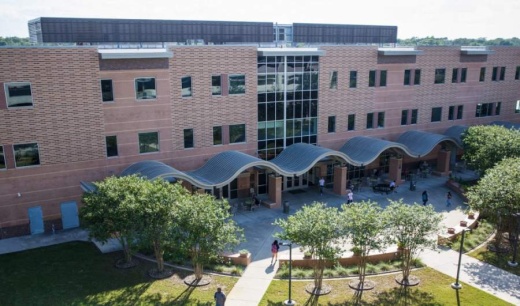The ACC board of trustees approved a measure May 4 to maintain the current tuition and fee rates for the coming school year. The vote came during a preliminary presentation to the board about the under-development fiscal year 2020-21 budget and possible impacts from the coronavirus pandemic.
“The assumption is that in a time like this if we don't have an immediate need, we probably aren't looking to increase tuition,” ACC Chief Financial Officer Neil Vickers told trustees May 4. “To keep things simple, to add clarity, to get out in front of a whole bunch of other decisions that need to be made, we are recommending that we go ahead and just agree to leave tuition and fees unchanged so that we can focus on other aspects of the budget.”
Current tuition, according the district for in-district students is $85 per credit hour, while Texas out-of-district tuition is $361 per credit hour. Out-of-state students pay $434 per credit. A full list of fees and rates can be found here.
According to the presentation by Vickers, the district had initially anticipated it would have a balanced budget for FY 2020-21, with $406,848,760 in revenue and expenditures. However, with the coronavirus pandemic ongoing, the district projects it could run at a $4.49 million deficit or worse during the coming year.
The projected deficit is based partly on funding changes the college district experienced during the recession in 2008, which saw a 10% decrease in state appropriations or funding to the district.
“We know right now the state is already having discussions of possible cuts larger than that,” Vickers said. “We've heard about running scenarios around 15% and even heard 20% numbers thrown around, so 10% is probably not a worst-case scenario.”
He said administration would be working from now until the final budget is approved in June to develop options to mitigate possible risks and to possibly reduce the deficit. Funding plans about possible staff compensation changes for the coming year are also still being developed.
Other considerations for the budget involve appraised values of properties in the district, which will be set at last year’s value by the Travis Central Appraisal District. While the district is not anticipating that will impact financials too much for FY 2020-21, property values are a concern for budgets beyond this year.
Vickers said that if there was a long-term economic downturn due to the pandemic, in which home values were to go down or show no growth, could put tax revenues at significant risk for FY 2021-22. Assuming a 10% decrease in state allocations and flat property values, the FY 2021-22 budget could be at a $15 million deficit, he said.
A decline in property values in the district has only happened once in the past 20 years, Vickers said.





